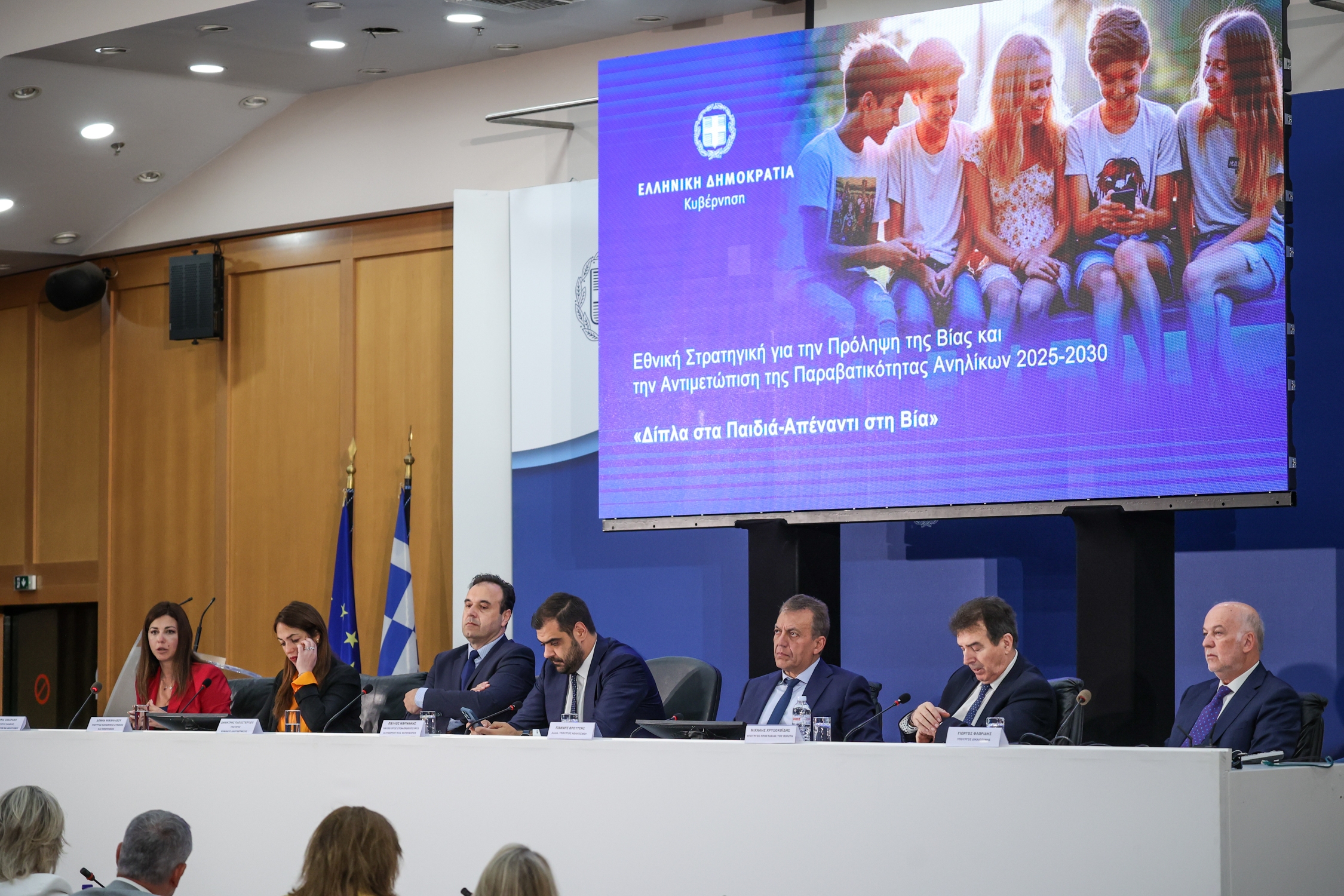Greece’s recipe for tackling “youth delinquency”: Kids Wallet, policing, and authoritarianism

Digital Governance Minister Dimitris Papastergiou introduced Kids Wallet, a new app aimed at regulating children’s use of digital platforms. Touted as a “cutting-edge, all-in-one tool,” it includes three key features: parental controls, age verification, and a digital ID for minors. Parents will be able to manage which apps and websites their children can access, limit screen time, and ensure age-appropriate content.
However, Papastergiou was keen to emphasise that the app is not meant to spy on children. “We must remember that children have a right to privacy and autonomy,” he said, urging parents not to overstep by invading their kids’ personal space. “Kids Wallet won’t let parents read their children’s messages or track their online movements – it’s simply a tool for setting boundaries and gaining insight into screen use.”
Minister of State Akis Skertsos praised the app as a “landmark” initiative, claiming it gives families the tools to address what he described as a problem rooted primarily in social media use. Citing research that children can spend up to six to eight hours a day in front of screens, he pointed to issues like poor sleep, attention difficulties, and social withdrawal.
“This is about giving parents and teens a better overview of their screen habits – not imposing control, but enabling guidance.”
Yet this narrative of non-coercive support clashed with the tone set by Citizens’ Protection Minister Michalis Chrisochoidis and Justice Minister Giorgos Floridis, who laid out a much more punitive vision.
Chrisochoidis highlighted hundreds of arrests of parents, as well as the regular deployment of police officers to public spaces frequented by teenagers. He presented this increased visibility as a “safety measure”, mentioning the Safe Youth app, designed to alert the police in case of emergency. He even boasted that Swedish police were visiting Athens to study Greece’s model for policing sports venues.
Justice Minister Floridis continued in the same vein, announcing tougher penalties for crimes against or in the presence of minors, and the introduction of a new offence: the recruitment of minors into criminal activity. The scope of offences that could lead minors to face custodial sentences was also expanded.
Despite this, he also mentioned so-called “reformative measures,” such as compelling young offenders to take part in cultural activities to support their reintegration. He outlined plans to open new support centres for vulnerable minors in Patras and Heraklion, to complement those already operating in Athens, Piraeus, and Thessaloniki.
Floridis concluded by portraying Greece as a role model in Europe, noting that it had been chosen as one of three countries tasked with presenting a new Charter of Children’s Rights to the Council of Europe.
“We can now feel safer,” he declared.
______________________________________________
Are you seeking news from Greece presented from a progressive, non-mainstream perspective? Subscribe monthly or annually to support TPP International in delivering independent reporting in English. Don’t let Greek progressive voices fade.
Make sure to reference “TPP International” and your order number as the reason for payment.